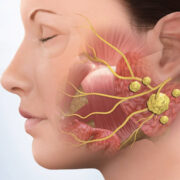Keeping your teeth and gums healthy is crucial for maintaining good oral hygiene. However, with busy schedules and unhealthy eating habits, dental problems have become increasingly common. From cavities to gum disease, there are various dental issues that can cause discomfort and pain. But don’t worry, we’ve got you covered! We would like to take this opportunity to welcome you to the Royal Dental Clinic’s blog page. Here, we will do our best to offer informative content on a variety of dental-related topics. We will discuss typical dental concerns such as tooth sensitivity, cavities, and gum disease in this post. Maintaining excellent oral health requires an understanding of the conditions that might arise, recognition of the associated symptoms, and familiarity with the possible courses of treatment. Join us as Dr. Chirag Chamria, an experienced dentist, addresses these issues and offers his insights.
Dental Cavities | Dental Problems
Cavities, also known as dental caries, are a common dental problem that affects people of all ages. Understanding the causes, recognizing the symptoms, and knowing the available treatment options can help prevent cavities and maintain good oral health. Let’s delve deeper into these aspects:
Causes of Cavities
Poor Oral Hygiene: Inadequate brushing and flossing allow plaque—a sticky film of bacteria—to accumulate on the teeth, leading to acid production and enamel erosion.
Diet: Frequent consumption of sugary foods and drinks provides fuel for the bacteria in the mouth, leading to increased acid production and enamel damage.
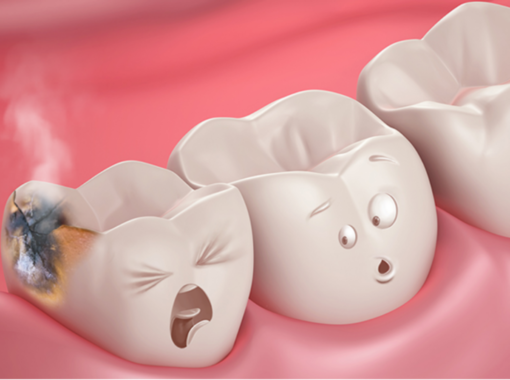
Dry Mouth: Saliva plays a vital role in neutralizing acids and maintaining a healthy oral environment. A dry mouth condition, often caused by medication or certain medical conditions, reduces saliva flow, making the teeth more susceptible to cavities.
Acidic Foods and Drinks: Consuming acidic foods and drinks, such as citrus fruits, sodas, and sports drinks, can erode tooth enamel and increase the risk of cavities.
Symptoms of Cavities
Toothache: Persistent or intermittent pain or sensitivity in the affected tooth is a common indicator of a cavity.
Sensitivity to Temperature: Increased sensitivity to hot or cold foods and beverages, or even cold air, can be a sign of tooth decay.
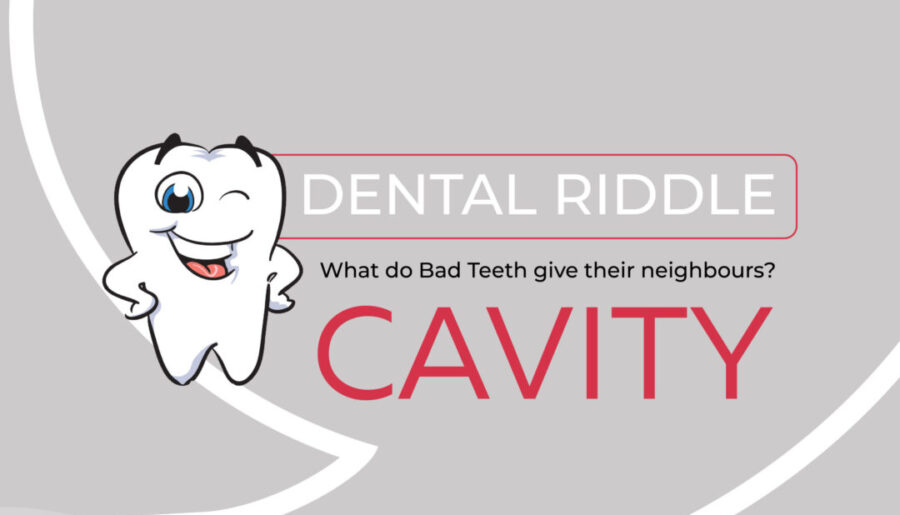
Visible Holes or Pits: Cavities can cause visible holes or pits on the surface of the affected tooth. These can be detected during a dental examination.
Discomfort While Chewing: If you experience discomfort or pain while chewing, it could be a sign of a cavity.
Treatment Options for Cavities
Dental Fillings: This is the most common treatment for cavities. The decayed portion of the tooth is removed, and the cavity is filled with dental materials such as amalgam (silver fillings) or composite resin (tooth-colored fillings).
Dental Crowns: If the cavity is extensive or the tooth is severely damaged, a dental crown may be recommended. A crown is a tooth-shaped cap that covers and protects the remaining tooth structure.
Root Canal Treatment: When a cavity progresses and reaches the tooth pulp, it can cause severe pain and infection. In such cases, a root canal treatment may be necessary. The infected pulp is removed, and the tooth is cleaned, disinfected, and sealed to save it from extraction.
Dental Inlays or Onlays: In cases where the cavity is too large for a filling but not extensive enough for a crown, dental inlays or onlays may be used. These restorations are custom-made in a dental laboratory and then bonded to the tooth to provide a precise fit and protection.
Gum Disease | Dental Problems
Gum disease, also known as periodontal disease, is a common dental problem that affects the gums and supporting structures of the teeth. Understanding the causes, recognizing the symptoms, and knowing the available treatment options can help prevent gum disease and maintain optimal oral health. Let’s explore these aspects in detail:
Causes of Gum Disease
Poor Oral Hygiene: Inadequate brushing and flossing allow plaque to accumulate, leading to gum inflammation and infection.
Tobacco Use: Smoking or using tobacco products increases the risk of gum disease. It also affects the healing process and makes treatments less effective.
Hormonal Changes: Hormonal fluctuations during puberty, pregnancy, and menopause can make gums more sensitive and prone to inflammation.
Medical Conditions: Certain medical conditions like diabetes, immune system disorders, and HIV/AIDS can increase the susceptibility to gum disease.
Medications: Some medications, such as certain types of anticonvulsants and immunosuppressants, can affect gum health.
Symptoms of Gum Disease
Red, Swollen Gums: In the early stages, gum disease (gingivitis) causes inflammation, making the gums appear red and swollen.
Bleeding Gums: Gums that bleed easily, especially during brushing, flossing, or eating, are a sign of gum disease.
Bad Breath: Persistent bad breath, despite proper oral hygiene practices, can be an indication of gum disease. This is caused by the accumulation of bacteria and toxins in the mouth.
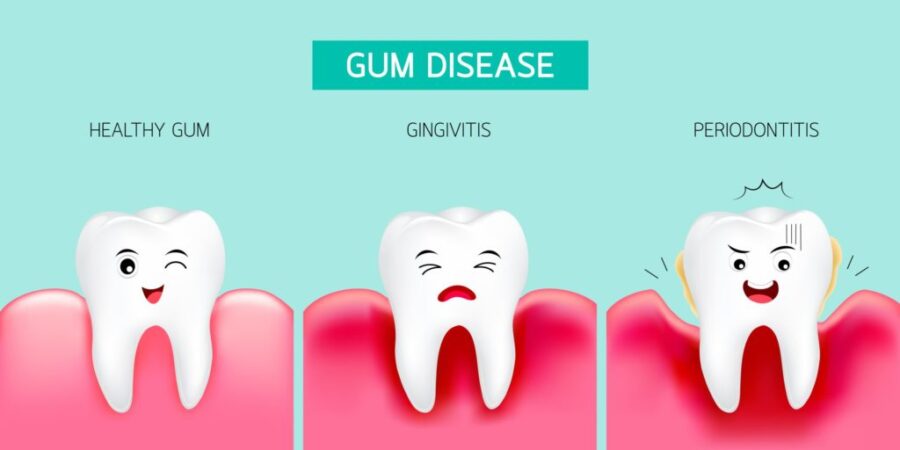
Receding Gums: As gum disease progresses, the gums may start to recede, exposing more of the tooth roots.
Loose Teeth: Advanced gum disease (periodontitis) may destroy tooth supporting structures, loosening or moving teeth.
Treatment Options for Gum Disease
Professional Dental Cleaning: Scaling and root planning eliminate plaque and tartar above and below the gumline. This helps to reduce inflammation and promote gum healing.
Antibacterial Therapy: Antimicrobial mouth rinses or antibiotics may be administered for bacterial infection and gum health.
Maintenance and Follow-up: Regular follow-up visits with your dentist are essential to monitor the healing process, ensure proper oral hygiene, and prevent the recurrence of gum disease.
Periodontal Surgery: Advanced cases of gum disease may require surgical interventions, such as:
a. Flap Surgery: The gums are lifted, and the underlying infected tissues are removed. The gums are then repositioned to fit snugly around the teeth.
b. Bone and Tissue Grafts: These procedures involve replacing damaged bone or gum tissue with grafts to restore the support and structure around the teeth.
Tooth Sensitivity | Dental Problems
Tooth sensitivity is a common dental problem that can cause discomfort or pain when the teeth come into contact with certain stimuli. Understanding the causes, recognizing the symptoms, and knowing the available treatment options can help alleviate tooth sensitivity and improve oral comfort. Let’s explore these aspects in detail:
Causes of Tooth Sensitivity
Enamel Erosion: The erosion of tooth enamel, often caused by acidic foods and beverages, aggressive brushing, or certain medical conditions, can expose the underlying dentin and lead to sensitivity.
Gum Recession: When the gums recede, the roots of the teeth become exposed, which can make them sensitive to temperature changes and touch.
Tooth Decay: Cavities or tooth decay can cause sensitivity, especially when they reach the inner layers of the tooth.
Teeth Grinding (Bruxism): Excessive teeth grinding or clenching can wear down the enamel, leading to sensitivity.
Dental Procedures: Some dental procedures, such as teeth whitening or dental crown placement, can cause temporary sensitivity.
Symptoms of Tooth Sensitivity
Sensitivity to Temperature: Increased sensitivity to hot or cold foods and beverages is a common indicator of tooth sensitivity.
Sensitivity to Sweet or Acidic Foods: Consuming sweet or acidic foods can trigger tooth sensitivity in some individuals.
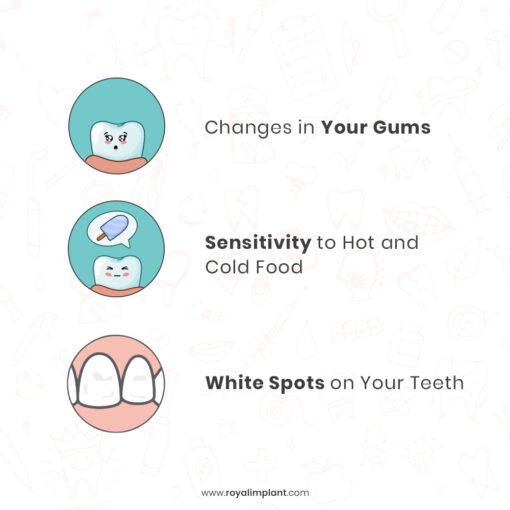
Discomfort While Brushing: Brushing the teeth, especially with cold water or toothpaste, may cause sensitivity and discomfort.
Discomfort While Flossing: People with tooth sensitivity may experience discomfort or pain when flossing, particularly if the floss contacts an exposed root surface.
Treatment Options for Tooth Sensitivity
Desensitizing Toothpaste: Specialized desensitizing toothpaste containing compounds such as potassium nitrate or fluoride can help alleviate tooth sensitivity over time. Regular use can block the pain signals and provide relief.
Dental Bonding or Sealants: Dental bonding or sealants may protect sensitive teeth from enamel degradation or exposed root surfaces.
Fluoride Treatment: Your dentist may recommend fluoride treatments to strengthen the enamel and reduce tooth sensitivity.
Gum Grafting: If gum recession is the cause of tooth sensitivity, gum grafting surgery may be necessary to cover the exposed root surfaces and reduce sensitivity.
Root Canal Treatment: Tooth sensitivity caused by decay or nerve damage may need root canal treatment. This procedure removes the damaged nerve tissue and seals the tooth, eliminating sensitivity.
Lifestyle Modifications: Making certain changes in your oral care routine can help alleviate tooth sensitivity. This includes using a soft-bristled toothbrush, practicing gentle brushing techniques, and avoiding acidic foods and beverages.
Prevention is Key | Dental Problems
Prevention is indeed key when it comes to maintaining good oral health and preventing dental problems. By adopting preventive measures and making oral hygiene a priority, you can significantly reduce the risk of dental issues such as cavities, gum disease, and tooth sensitivity. Here are some important steps you can take for effective prevention:
Practice Good Oral Hygiene: Brush your teeth at least twice a day using fluoride toothpaste and a soft-bristled toothbrush. To clean all dental surfaces, brush for two minutes. Additionally, floss daily to remove plaque and food particles from between your teeth and along the gumline.

Limit Sugary and Acidic Foods: Foods and beverages that are high in sugar or acidity contribute to tooth decay and enamel erosion. Limit your intake of sugary snacks, sodas, and citrus fruits. When you do consume them, rinse your mouth with water afterward or brush your teeth if possible.
Avoid Tobacco Products: Smoking and tobacco use increase the risk of gum disease, tooth decay, and oral cancer. Quitting tobacco not only improves your oral health but also benefits your overall well-being.
Visit Your Dentist Regularly: Regular dental check-ups are essential for preventive care. Schedule visits to your dentist every six months or as recommended. These visits allow for professional cleanings, early detection of dental problems, and personalized advice for maintaining optimal oral health.
Treat Dental Problems at Royal Dental Clinics
If you’re experiencing dental problems such as cavities, gum disease, or tooth sensitivity, it’s important to seek professional treatment from a trusted dental clinic. Royal Dental Clinics, led by Dentist Dr. Chirag Chamria, is your destination for comprehensive dental care. With a commitment to delivering high-quality services, we offer a wide range of treatments to address your dental concerns effectively.
Here’s why you should choose Royal Dental Clinics:
Experienced and Skilled Dentist: Dr. Chirag Chamria is a highly qualified and experienced dentist with expertise in various dental procedures. With his knowledge and skills, you can trust that you’re receiving the best possible care.
State-of-the-Art Facilities: We are equipped with modern, state-of-the-art facilities and advanced dental technology. This ensures that you receive the latest and most effective treatments for your dental problems.
Personalized Treatment Plans: We believes in providing personalized care to each patient. A personalised treatment plan will address your oral difficulties after a comprehensive evaluation.
Patient Comfort and Care: The team at Royal Dental Clinics prioritizes patient comfort and care. We create a warm and welcoming environment where you can feel at ease throughout your dental treatments. You’ll be helped with compassion and professionalism.
Conclusion
Understanding the causes, symptoms, and treatment options for common dental problems like cavities, gum disease, and tooth sensitivity empowers you to take better care of your oral health. By practicing good oral hygiene, visiting your dentist regularly, and seeking timely treatment, you can prevent these issues from escalating and ensure a healthy smile for years to come. Remember, prevention is key, and your oral health is worth investing in. Stay informed, prioritize dental care, and embrace a confident smile!
© All rights reserved by Royal Dental Implants Pvt Ltd
Issued in public interest



